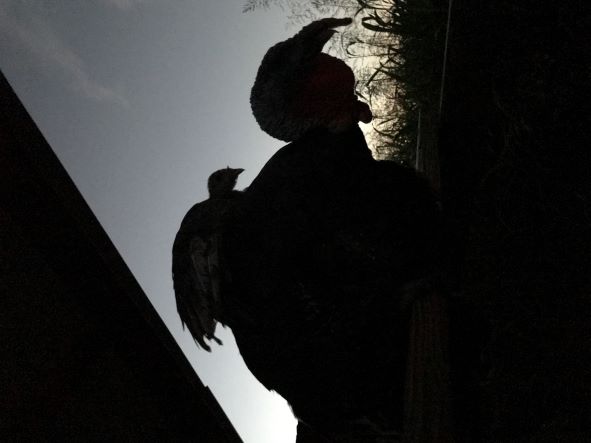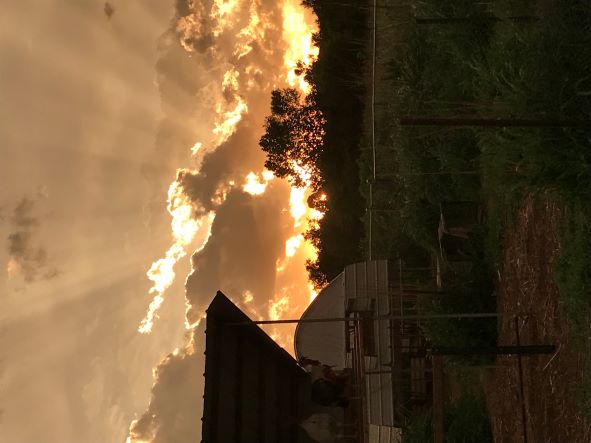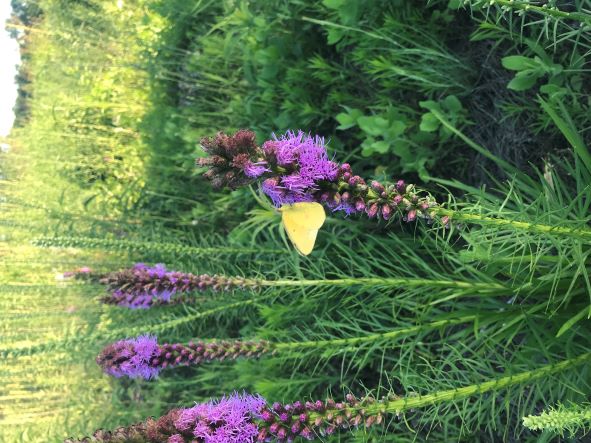.
What does it take to treat an animal ethically? The reality is that most of our animals are being raised for food. Very few of them will die from old age. Yet while they are here on the farm, we can treat them as ethically and humanely as possible by what we do and by what we don't do.
Our overriding concern is that the animals get to act like the animals they are. Chickens get to be chickens, and turkeys get to be turkeys. They have as much autonomy as possible. They perch when they want to, sleep when they want to, eat when they want to, drink when they want to, and take dust baths when they want. They have access to their coop, roost, run, food, water, and large outdoor spaces 24 hours each day.
They have safety. Their pen and it's 5 foot fence protects the chickens from most predators during the day. A 240 square foot space is sheltered against the wind, rain, and flying predators. At night they retreat to a coop on stilts with a door 5 feet off the ground, a space impervious to weasels, raccoons, badgers, and nearly every other predator. Their pens are not bare, but have plenty of cover in the form of trees and tall grasses. We have roosters and turkey toms with protective instincts that look out for predators and dangers, and actually call and herd poults to roost at night. Most birds have the ability to fly out of their pen, but choose to stay in their comfortable run.
They have a variety off feed. Birds always have a special feed we design and mix for them. It's made mainly of corn, peas, and oyster shell, sometimes soy, sometimes alfalfa. It's a feed designed to keep them healthy and productive. But that's not all. They get to forage for seeds, bugs, and fruits that occur naturally in the pen. There are even fruit trees planted right in their pen. We raise crickets in the run that the chickens can hunt. That gives them protein, and it lets them behave as they would in the wild. They get our compostables--all the blemished fruit, scraggly lettuce, and frozen pumpkins. They get periodic access to garden areas where they glean the fields and catch more insects. It keeps them happy, and I daresay makes them tasty.
During bree
Broody birds are allowed to raise their own offspring. They are allowed to form their own flocks and friends.
There are no cages, and in particular there are no trap cages for egg layers.
They have soil access for dust baths, plus wood chips and grass clippings to keep them scratching.
They live and grow at a natural rate. They are not force fed. They are not in a confined feeding situation. They are not forced to put on 5 pounds in 2 months as in a factory farm, but get 5-7 months to grow out. They do not get GMO feed nor medicated feed. They are not given growth hormones.
They are not artificially inseminated.
They have space. Most birds have 60 or more square feet to themselves compared to the less-than-2 square feet of a factory farm.
When it is time to butcher, they are killed quickly and humanely
I don't mean to say these birds are roaming the forest wild like their ancestors, but it's a reasonably close approximation.
.


